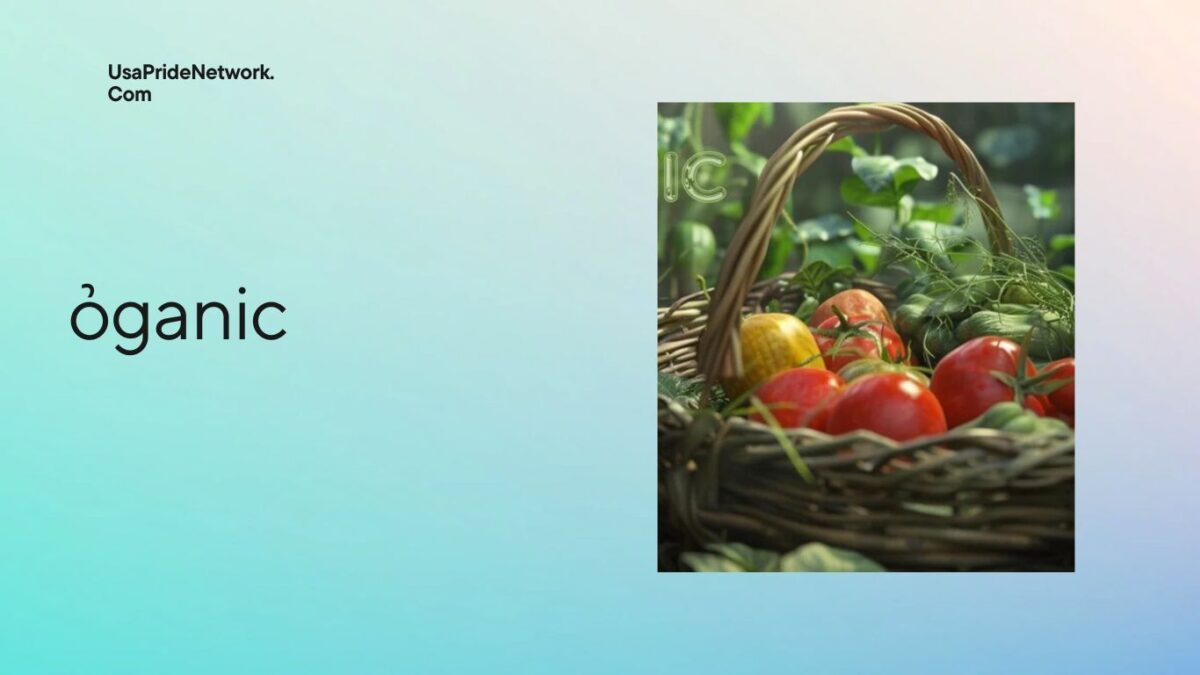Introduction to ỏganic
In recent years, the term “ỏganic” has gained significant attention in various fields, including agriculture, food production, and lifestyle choices. People are increasingly interested in the benefits of organic practices, not just for health reasons but also for environmental sustainability.
This article aims to provide a comprehensive understanding of what “ỏganic” means, its benefits, and how it affects our daily lives.
What Does ỏganic Mean?
The word “ỏganic” generally refers to products and practices that are free from synthetic chemicals, pesticides, and genetically modified organisms (GMOs). In agriculture, organic farming focuses on natural processes, biodiversity, and soil health. The goal is to produce food that is healthier for consumers and kinder to the planet.
The Rise of ỏganic
The growing interest in “ỏganic” can be attributed to several factors:
- Health Consciousness: More people are becoming aware of the impact of their diet on health. Organic foods are often perceived as healthier because they are less likely to contain harmful chemicals.
- Environmental Awareness: With the increasing concern about climate change and environmental degradation, many individuals are opting for organic products that promote sustainability.
- Support for Local Farmers: Purchasing organic products often means supporting local farmers who engage in sustainable practices, thus benefiting the local economy.
Understanding Organic Certification
To be labeled as “ỏganic,” a product must meet specific standards set by certifying bodies. In the United States, the USDA (United States Department of Agriculture) oversees organic certification. Here’s what it typically involves:
- No Synthetic Pesticides or Fertilizers: Organic farming prohibits the use of synthetic chemicals, ensuring that the produce is free from harmful substances.
- Non-GMO: Organic products cannot contain genetically modified organisms, making them a natural choice for consumers concerned about GMOs.
- Animal Welfare: For animal products to be labeled as organic, the animals must be raised in humane conditions with access to the outdoors and a natural diet.
Benefits of Choosing ỏganic
- Health Benefits
- Fewer Chemicals: Choosing “ỏganic” means consuming fewer harmful chemicals, which can be especially important for children and pregnant women.
- Higher Nutritional Value: Some studies suggest that organic fruits and vegetables may have higher levels of antioxidants and nutrients compared to conventional counterparts.
- Environmental Impact
- Biodiversity: Organic farming practices promote biodiversity by using crop rotation, cover cropping, and other techniques that enhance soil health.
- Soil Health: Organic farming improves soil quality by focusing on natural fertilizers and compost, reducing soil erosion and degradation.
- Taste and Quality
- Many consumers report that organic products taste better than conventional ones. This could be due to the lack of artificial ripening agents and the emphasis on natural growing conditions.
Common Misconceptions About ỏganic
Despite its benefits, there are several misconceptions about “ỏganic” products:
- More Expensive: While organic products often cost more, many people believe that the health benefits and environmental impact justify the price.
- No Difference in Quality: Some argue that organic and conventional foods are essentially the same. However, research indicates that organic foods often have fewer contaminants and may be more nutritious.
How to Choose ỏganic Products
When shopping for “ỏganic” products, consider the following tips:
- Look for Certification Labels: Always check for the USDA organic seal to ensure that the product meets organic standards.
- Buy Local: Farmers’ markets often have fresh organic produce. Buying local not only supports the community but also reduces the carbon footprint associated with transportation.
- Know Your Products: Familiarize yourself with which products are worth buying organic. For example, produce with thick skins (like avocados) may not require organic options as much as delicate fruits (like strawberries).
The Future of ỏganic
The future of “ỏganic” is promising as more people become conscious of their consumption choices. The organic market is expected to grow, with innovations in organic farming practices and increased accessibility to organic products.
Conclusion
Choosing “ỏganic” products is more than just a trend; it’s a lifestyle choice that benefits personal health, the environment, and local economies. By understanding the meaning and impact of organic practices, consumers can make informed decisions that align with their values.
FAQs ỏganic
What is the difference between organic and non-organic?
Organic products are grown without synthetic pesticides, fertilizers, or GMOs, while non-organic products may be treated with these substances. Organic farming focuses on natural processes and sustainability.
Are organic foods more nutritious?
Some studies suggest that organic foods may have higher levels of certain nutrients and antioxidants. However, the nutritional differences can vary based on factors like soil health and farming practices.
Is organic food safer to eat?
Generally, organic food is considered safer because it is less likely to contain harmful chemicals and pesticides. However, all food should be washed and handled properly to reduce the risk of contamination.
How can I identify organic products?
Look for the USDA organic seal on products. This certification indicates that the product meets strict organic standards.
Why is organic food more expensive?
Organic farming often involves more labor-intensive practices and stricter regulations, which can lead to higher production costs. Additionally, organic products are often produced in smaller quantities.
Can I grow my own organic food?
Yes! Growing your own organic food is a great way to ensure you have fresh produce without synthetic chemicals. Start with herbs or vegetables that are easy to grow, and follow organic gardening practices.
This article provides a thorough exploration of “ỏganic” and its implications for health and the environment. By understanding the benefits and choosing organic products, consumers can contribute to a healthier planet and a better quality of life.






